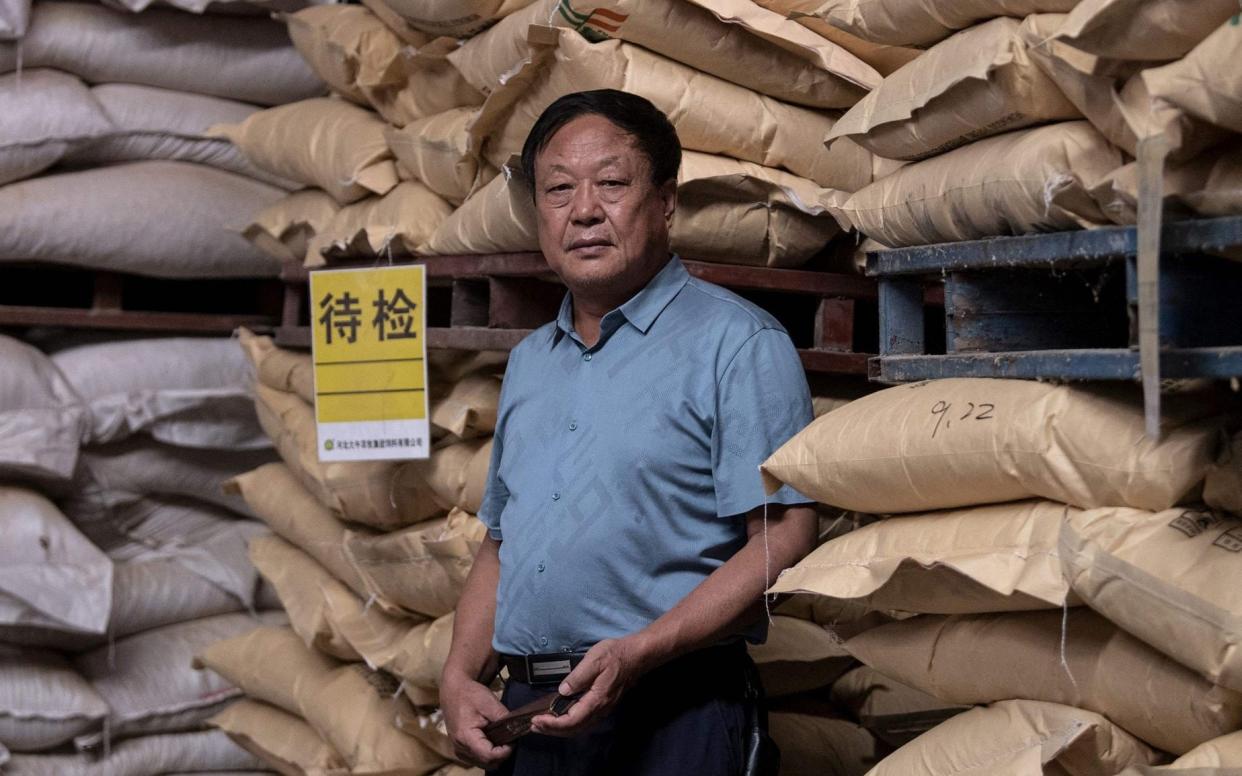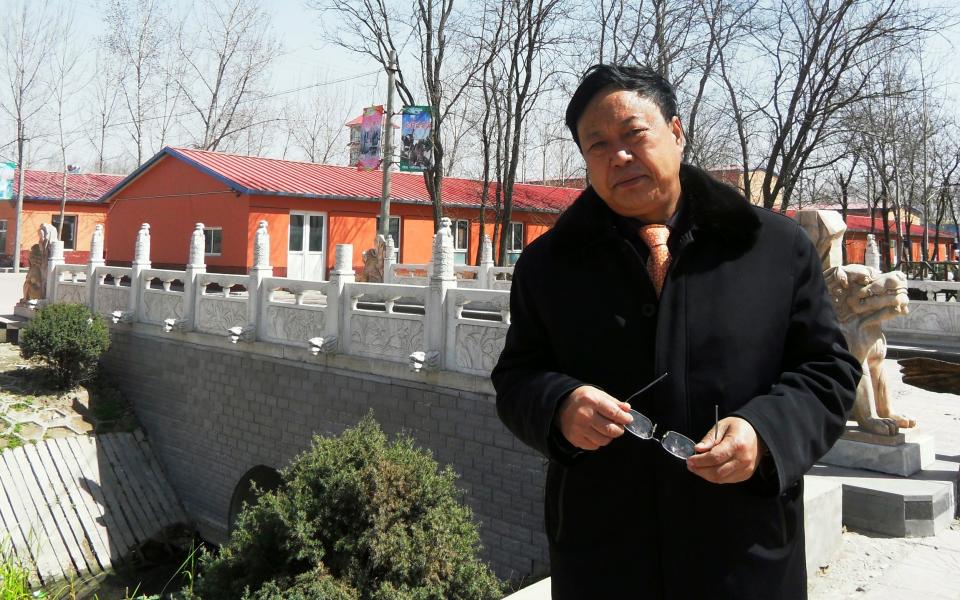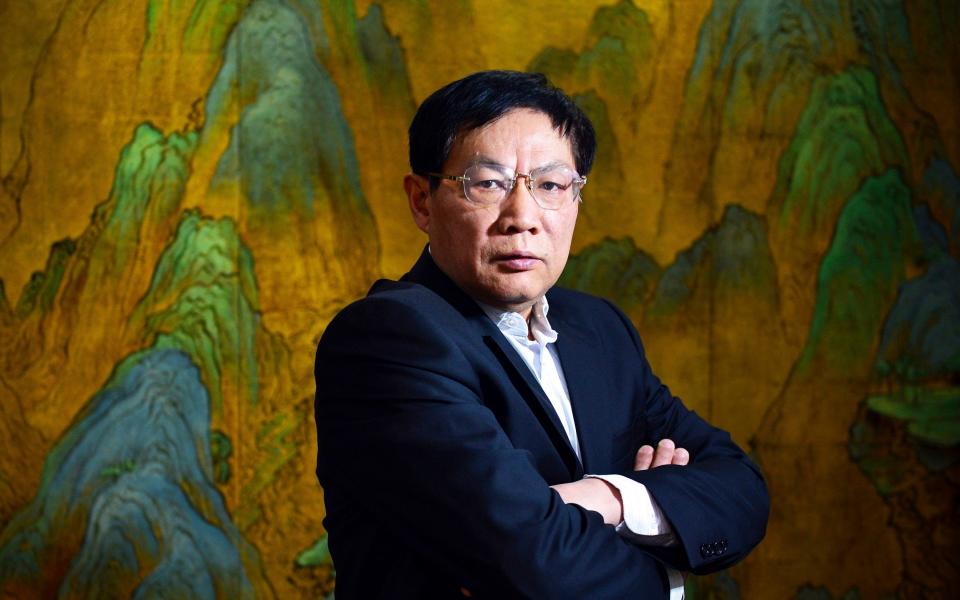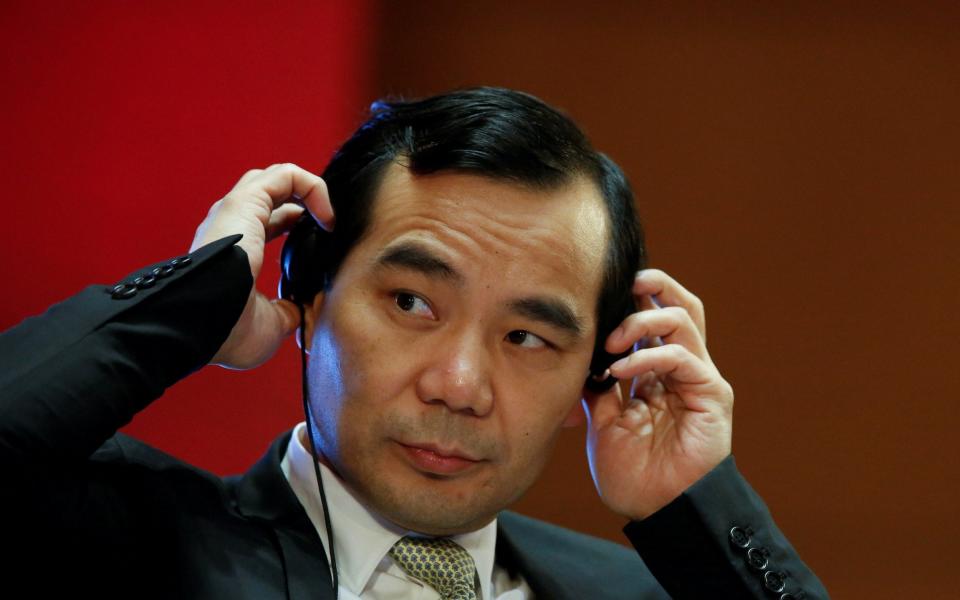Chinese billionaire pig farmer jailed for 18 years for 'provoking trouble'

- Oops!Something went wrong.Please try again later.
Sun Dawu, a tycoon and outspoken critic of the Chinese Communist Party, has been sentenced to 18 years in prison, becoming the latest high-profile executive targeted in a widening crackdown.
Mr Sun, who made his fortune in animal husbandry, was found guilty of eight charges including “picking quarrels and provoking troubles”; a charge which is used frequently to go after dissidents and human rights activists in China.
He was one of the few to accuse the Chinese government of attempting to cover up the extent of African swine flu, which infected one of his farms in 2019 and decimated the country’s pig population.
The crisis was so serious that Chinese authorities had to tap into the nation’s strategic reserves to ensure a continued supply of pork, one of the nation's most popular meats.
The case that Mr Sun was on trial for was linked to a land dispute with a local government-owned farm, according to media reports.

Employees of his company, Dawu Group, tried to petition local regulators to assist in resolving the dispute. However, the authorities detained him instead, as well as some of his relatives and employees.
Mr Sun worked for a state-owned bank before launching his own business – starting with 50 pigs and 1,000 chickens – and building it into an agricultural empire with thousands of employees.
The billionaire farmer is the latest to fall foul of Beijing as it ramps up its campaign against critics of the ruling Communist Party.
His arrest is one of many signs displaying the Chinese government’s hardening stance and increasing intolerance for dissent at any level – including from well-known business executives.
Mr Sun’s lengthy sentence comes as China seeks to exert greater control over the private sector at a time when many Chinese companies have grown exponentially, with some seeking to list publicly overseas.

Along with a spate of new regulations for the technology and education industries, China has also handed down multi-billion dollar fines to major firms like Alibaba – a message that Beijing won’t allow any corporation or individual to harness outsized influence or compete with the party.
Last year, Ren Zhiqiang, a retired property mogul, was also sentenced to 18 years in prison after he penned an essay online accusing Chinese leader Xi Jinping of mishandling the coronavirus outbreak in Wuhan, and calling him “a clown”.
“There stood not an emperor displaying his ‘new clothes’, but a clown with no clothes on who was still determined to play emperor,” the essay read. “Despite clutching some rag in an attempt to cover up his nakedness, he couldn’t cover up his ambition to be emperor.”
Mr Ren, who earned the nickname “Ren the Cannon” due to his history of outspoken critiques, was detained by the authorities in March 2020 and sentenced six months later.

It was a bold move for Chinese authorities to go after a well-regarded party member with ties to the political elite, signalling that the government would continue muzzling critical voices.
In 2018, another Chinese tycoon, Wu Xiaohui - who was chairman of a major insurance firm that purchased New York’s legendary Waldorf Astoria hotel - was also sentenced to 18 years for allegedly defrauding investors.
At the time, experts viewed Mr Wu’s downfall as part of a wider campaign to reassert control over private companies that had ramped up the purchase of assets abroad, contributing to the flight of capital and potentially undermining domestic financial stability.

